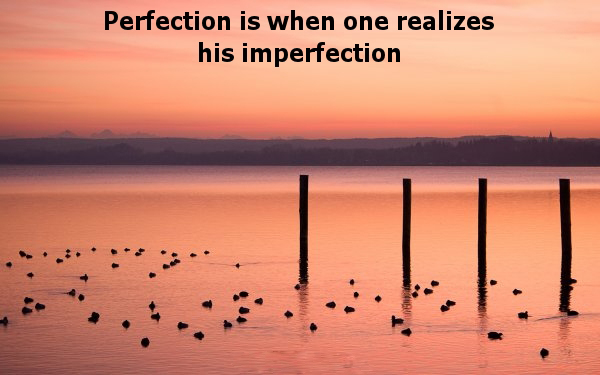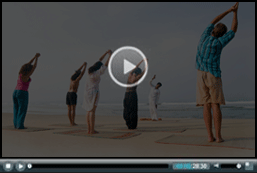Testimonials
Rehabilitation of Cancer patients (An approach based on yogic principles)
As Envisioned by Guruji Rishi Prabhakar
 Understanding cancer from a yogic perspective:
Understanding cancer from a yogic perspective:
The World Health Organization defines cancer as the uncontrolled growth and spread of cells that may affect almost any tissue of the body.
From his studies of cancer patients, Guruji Rishi Prabhakar describes cancer in the following manner: "A reaction of the immune system to generate cells that multiply at a faster rate than normal. This occurs in two steps. Firstly, an irritant used repetitively results in damage to a particular cell line (ie. chewing tobacco or smoking). Next, the immune system is disabled such that it does not have normal control over the multiplication of cells. In cases of chronic irritation -such as smoking or chewing of tobacco -the stress on susceptible cells is almost constant.
In response, mutations may occur resulting in rapidly multiplying cells." Guruji Rishi Prabhakar feels this is synonymous to irritation that occurs at the societal level. For example, if agitation or irritation is perpetuated in countries, the disharmony that may ensue can result in catastrophic outcomes that may mimic the malignant outcomes on a larger scale than those seen in the individual patient.
In yogic terms, 'Prana' is defined as the life force that distinguishes the living from the non-living. Ancient yogis described the flow of Prana through an invisible system of charkas in the human body from the spine ascending to the brain. The 'Mooladhara' is the bottom-most chakra at the base of the spine. When the 'Prana' descends to the 'Mooladhara' the flow of life force is inverted. Yogis feel that this process in intrinsically related to the development of cancer.
Treatment of Cancer:
When people adhere to screening programs or regularly visit their physician, cancers can be diagnosed early and less invasive therapies may be sufficient. If diagnosed with a malignancy, many patients determine to change their thinking as well as their life style. Guruji Rishi Prabakhar feels that in conjunction with conventional treatments, with such a positive attitude, cancer can be beaten.
In Western countries, cancers are rigorously screened for and public systems allow access to treatment and surveillance. However, in the rest of the world, most people are diagnosed with cancer much too late. If the condition is advanced, the psychological impact may be so profound that they don't care to live or even to pursue treatment. Unfortunately, by the time major symptoms develop, it is often already too late. In some countries patients are not even told that they have cancer in the hope of reducing the psychological shock.
In India, until recently (2004), people have been very neglectful of their health. They often present with advanced, disseminated cancers. The treatments are invariably comprised of a combination of surgery, radiation and chemotherapy. This leaves them very exhausted psychologically and financially. The family may become bankrupt as each round of chemotherapy can cost $1,000 or more, not including radiation or surgery. All too often, patients choose to cancel therapy in order to save the family from financial disaster.
Rehabilitation Program:
Our program aims to prevent cancer, in addition to help rehabilitate patients who have recently been diagnosed with cancer. We propose that cases mandating surgical removal of primary malignancies be followed by our rehabilitation program. Moreover, patients will be offered the conventionally accepted adjuvant cancer treatments. The patient will have the choice.
The rehabilitation program endeavors to shift the attitude and lifestyle of the patient leading to stimulation of the immune system to reverse the process of carcinogenesis. Rishi Prabakhar feels that the activated immune system will hopefully be able to make antibodies against the cancer. The process involves stopping potential irritants; either mental or physical. We must also provide an environment conducive to healing and regeneration. All of the patient's areas of need must be addressed. This can be accomplished with the following steps:
Step 1:
The patient must be empowered to recover from the trauma of invasive therapies and interventions through physical and psychological care. They must be taught they can beat cancer and overcome the conditions that caused it in the first place. This will complement conventional cancer treatments. This may take a month or two.
Step 2:
The patient will participate in the Siddha Samadhi Yoga Joy therapy for 20 days to realize that they can discover inner happiness irrespective of health problems or environmental stresses. A zest for life is created. This is the beginning of their recovery; a transition from hopelessness to joy.
Step 3:
The patient develops a new meaning of life. Within a month or two they become sufficiently strong to participate in productive activities. This is the beginning of self - sufficiency. Now, they have to learn how to live a meaningful life without going back to their old one, which may have created the environment for cancer to develop. In essence, the patient is taught to live and operate from an inner freedom that circumvents societal pressures. In yogic terms, this is the release of Karma and Dharma Bandana, or the breaking of the burdens that bind us. This is analogous to rebirth or resurrection. We will offer this to family members as well.
Step 4:
The patient has a new life. This may entail a new profession and a new way of living. For this to begin we start with a 'Pada Yatra' (peace pilgrimage on foot -traveling through villages) therapy program for a month. Soon they will be trained to take other people for' Pada Yatras'. This may empower them to pursue new dreams and potentially allow them to better the lives of others. Ironically, cancer can become a catalyst for a life-change which will allow them to be full of joy.
Step 5:
For the people who have incurable disease palliative care will be provided in a peaceful and pain free environment.

 Most of us know how much Guruji was at ease with things however imperfect they were. In fact, most of the times he would just allow all chaos around him. But there was another dimension to him too.
Most of us know how much Guruji was at ease with things however imperfect they were. In fact, most of the times he would just allow all chaos around him. But there was another dimension to him too.